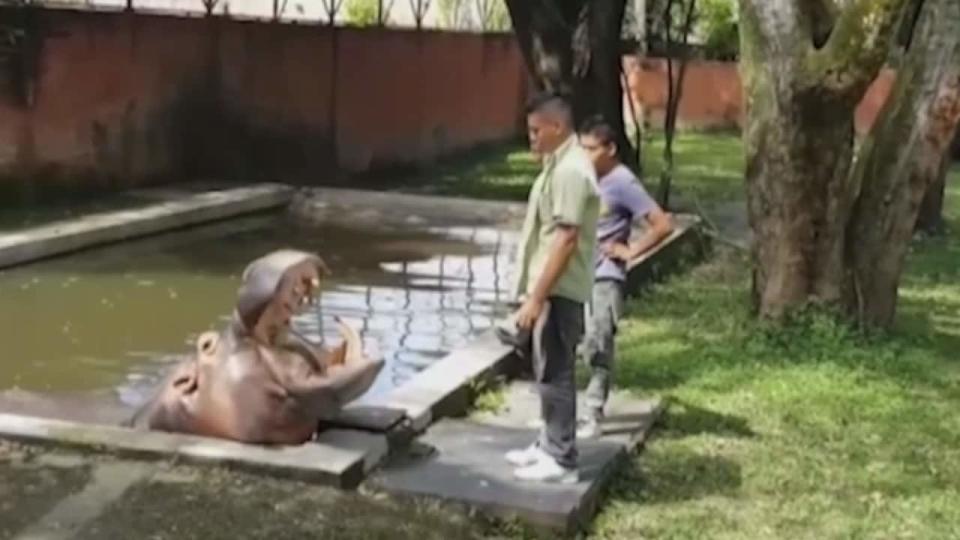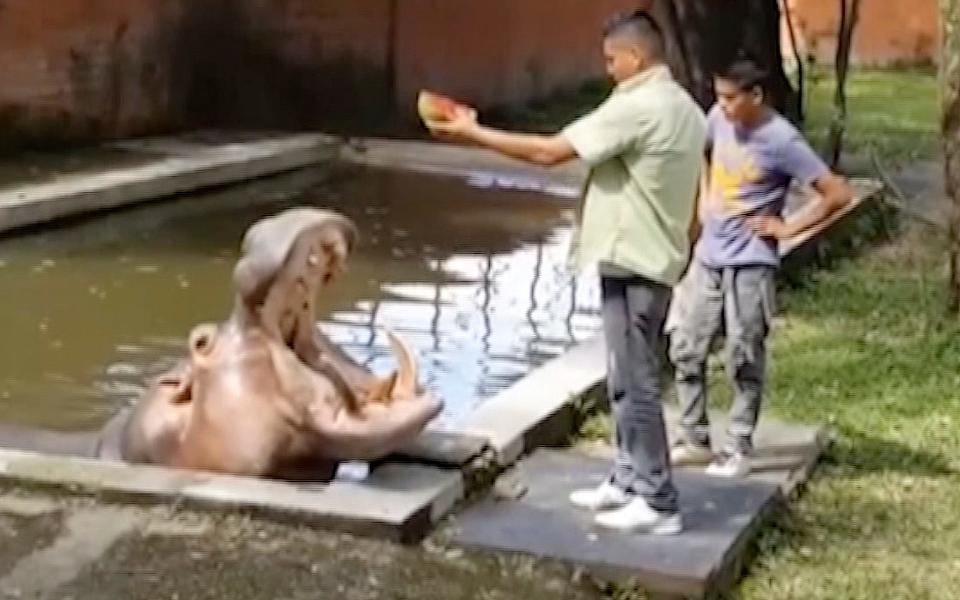Authorities investigate killing of hippo Gustavito at El Salvador zoo
El Salvador's widespread violence reached an unexpected corner with the brutal and fatal beating of the national zoo's beloved hippopotamus Gustavito.
Even among a population numbed by a staggering human death toll due to gang violence in recent years, the animal's death late on Sunday stirred outrage.
Salvadorans mourned through social media and some left flowers at the gate of the National Zoo of El Salvador, which has been closed until further notice.
La caricatura de #Alecus: #Gustavitohttps://t.co/oDSx9L2pYBpic.twitter.com/ZooPqSWPQM
— elsalvador.com (@elsalvadorcom) 27 February 2017
"Here we're used to seeing the dead every day," Martin Castillo, a street vendor in the capital's historic downtown, said on Monday. "They kill us like flies, but this tops it all. They killed an animal that only entertained us."
Zoo director Vladan Henriquez said at a news conference that the 15-year-old hippo was covered with bruises and puncture wounds after apparently being attacked with metal bars, knives and rocks.
The attack occurred last week, sometime on Tuesday night. But zookeepers did not discover the hippo's injuries until Thursday because he did not leave his pool. Gustavito died the injuries late on Sunday.
#GobSV | @SECULTURASV expresa consternación por fallecimiento del hipopótamo Gustavito �� https://t.co/VUKdPNsntNpic.twitter.com/RVHtoY3PPR
— Secr. Comunicaciones (@GobSV_Comunica) 27 February 2017
Officials have described it as a cowardly and inhumane attack on one of the most iconic animals at the city's zoo.
Mauricio Ramirez Landaverde, the country's justice minister, said an investigation had been opened.
Culture secretary Silvia Elena Regalado said in a statement released on Monday that she "deeply regretted" the situation and characterised the beating of the animal as "brutal".
She added that since 2009 the zoo has suspended the practice of buying exotic species and that, following this event, no more large animals will be introduced. She also said that the park will "accelerate" its transition into a centre for protection of native animals.
El Salvador is one of the world's most violent countries, recording 5,278 homicides last year, or an average of 14 people killed per day. Most of the killings have been blamed on powerful street gangs.
Gustavito was born and raised in Guatemala, but was brought to El Salvador 13 years ago.
"We're angry," said Carmen Rogel, who often brings her grandson to the zoo. "We didn't know they had killed Gustavito and were surprised when we arrived and the gate was closed."

 Yahoo News
Yahoo News 

